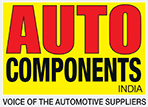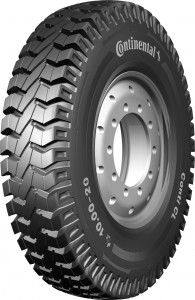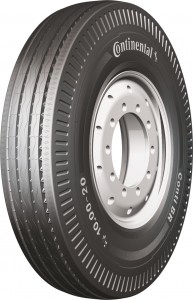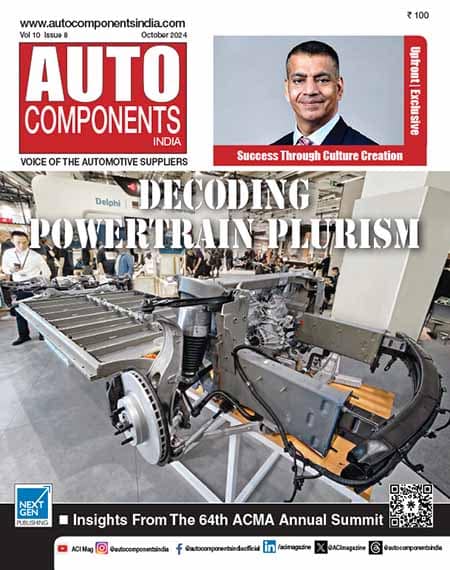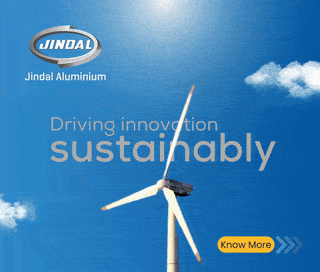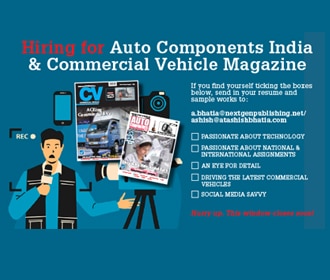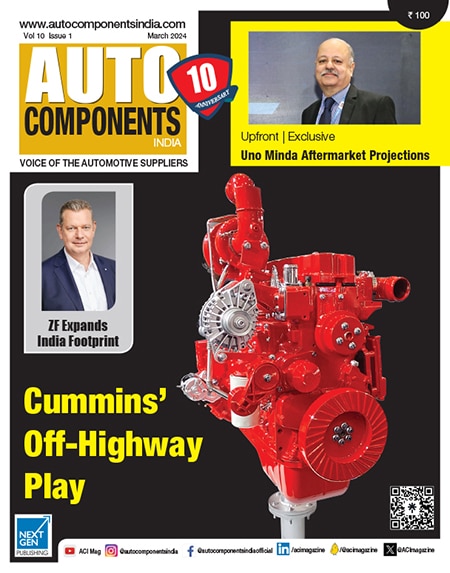Text: Bhargav TS
Continental presented its first test tyres made from the innovative material called Taraxagum which is derived from the natural rubber from dandelion roots. The research team’s long-term goal is to find an ecologically, economically and socially viable solution for the increasing demand for natural rubber. This would ease the pressure on the traditional rubber tree plantations in the tropics.
Mallika Rawal, National Marketing Manager – Truck Business, Continental India said, “As a global company, we recently unveiled our first tyre made out of Traxagum material, which is derived from the natural rubber from dantelion roots. The reason behind developing this tyre is to ease the pressure on the traditional rubber tree plantations in the tropics. Additionally, the aim is to reduce dependency on natural rubber which can be subject to severe price fluctuation on the commodities exchange. Cultivating the dandelion crops near Continental’s European tyre plants reduces the outlay for logistics and the burden on the environment.”
The biggest challenge that the entire tyre industry is facing at present are low priced Chinese Imported tyres which are being offered at a throwaway price. Rawal said, “At Continental, we are a strong proponent of the Make in India campaign of our PM. But for Indian players to have a fair chance against the Chinese brands we need to level the playing field. To manufacture in India, we are paying for the steadily increasing manufacturing costs as well as high quality standards which are held dear by Continental.”
Even though in the long run the product performance of the Chinese imports may be deteriorating, customers are getting easily lured by the low initial investments and involved in purchasing them. In order to lessen the impact of the Chinese tyres in the market Government’s intervention is the cry of the hour and lots of efforts are propping up from the government. With the increased awareness of the customers in India the concerns for safety are also rising.
Continental is first and foremost R&D driven organisation. Disclosing the nitty gritty of the R&D operations Rawal said, “We spend ample time in testing the product in order to understand the customers’ basic requirements. As our product strategy, we first go to the customers’ site for research to understand their operations. Our in-house R&D team based out of Modipuram works in close coordination with our colleagues based in Malaysia and Hannover to customise products suited for domestic applications. At the present stage we are not concerned about numbers but rather about performance.”
Continental believes in performance and feels it as a key factor for success. It is working on certain attributes like rolling resistance, low tyre noise and multi-treading options. “Now a days due to advance technologies there are many ways to improve the rolling resistance. There are many options for changing the contours which in-turn increasing the multi-treading possibilities. We try to optimise the performance, thereby keeping chip and chunk resistance, steerability and cooler running through our technical advantage of superior tread compounds,” added Rawal.
On the global level Continental has launched the new ContiPressureCheck system which constantly measures the pressure and temperature of all tyres on the vehicle. This system helps to save fuel and increase mileage. It also significantly reduces the risk of tyre failure, whilst maintaining the value of the casing, and thus giving multiple retreads. This system is still in the beginning phase and has been launched in Europe and US. The company feels that, India has a huge potential for tyre retreading and most of the customers prefer strong casing so that the treading could be done multiple times. To highlight Continental has an established foot print in APAC region.
Commenting on the Indian operations, Rawal claims, “India as a market is full of opportunities as well as challenges. When we look at the ambitious automotive Mission plan 2016-26, it spells only good news for us. The plan to increase the commercial vehicle to 2-3.9 million units shows a huge opportunity for future. Continental bustles to capitalise on the swelling opportunities.”
The approach of Continental is entirely product and consumer driven. Remarking Continental’s strategy Rawal averred that, “We regularly look at our product portfolio to identify the gaps in the same and to produce the products that exceeds the expectations of our customers. Last year, we launched our complete range of Truck Bus Radial (TBR) tyres making us the only international player with both TBR & TBX tyres in the portfolio. This year also we have introduced 3 new products in the bias portfolio- Conti BR (Bus Rib), which is the first bias tyre in India developed specially for the bus application, Conti CL (Construction Lug), a strong and sturdy tyre specific to the construction application and Conti L (Lug) for high mileage highways and road applications.”
Continental has expanded its dealer network quite rapidly in India to cater to their customer needs better. It has access to over 110 regional distribution centers and about 1400 dealers nationwide. The company feels that its overall growth plans for India will attract more distributors to support the Continental brand. The tyre maker is also constantly enhancing its dealership count at regular intervals.
Continental’s Plant at Meerut has an installed capacity to produce 225,000 Truck & Bus Radial Tyres and 1.1 Million Truck Bus bias tyres at present. With great opportunities greeting the auto segments, Continental will look forward with its innovative tyres and lots to appraise about the company’s performance. Globally, Continental is one of the major suppliers to many OEs like Volvo, Man, Scania, Volkswagen but in India it is limited its presence in aftermarket only. Nevertheless India is fast developing country and in all developing countries the infrastructure and industrialisation is poised to grow which will need faster trucking movement in all sectors. This will fuel the domestic potential growth and Continental has installed high capacities to cater to such high demanding markets. ACI
